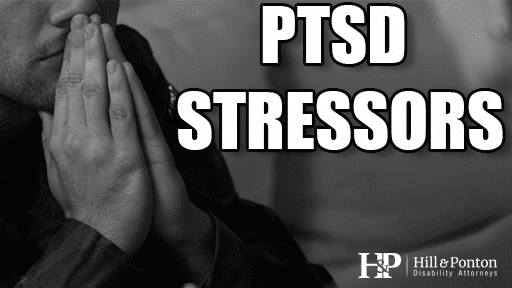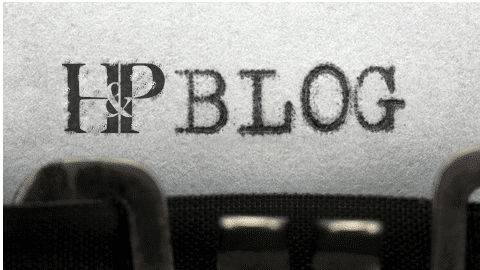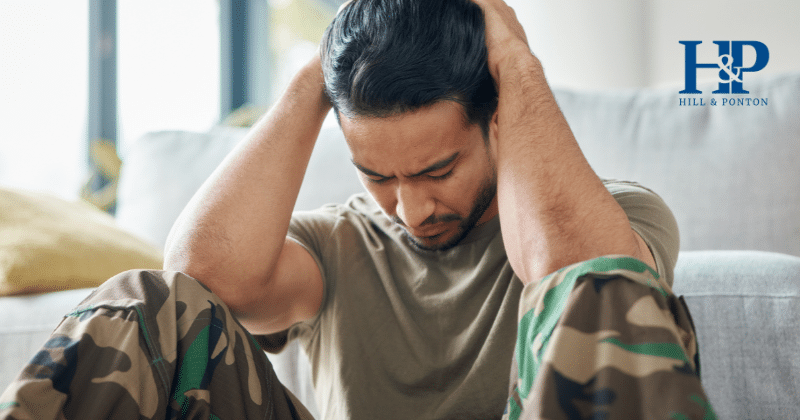Stressor Verification: PTSD Stressor Letter Sample for VA Claims
Some individuals that experience a traumatic event develop post-traumatic stress disorder (PTSD). This traumatic event is also referred to as a “stressor.” The U.S. Department of Veterans Affairs states a PTSD stressor involves exposure to death, threatened death, actual or threatened serious injury, or actual or threatened sexual violence. The exposure can be:
- Direct exposure
- Witnessing in-person
- Indirect exposure, by learning that a close relative or close friend was exposed to trauma. If the trauma involved actual or threatened death, it must have been violent or accidental.
- Repeated or extreme indirect exposure to details of the trauma. This is usually in the course of professional duties.
Examples of stressors include, but aren’t limited to the following: participation in combat (combat veterans), military sexual trauma, witnessing a roadside bomb go off, learning that a family member was killed, or being part of a burial crew. The symptoms of PTSD can vary, as can the specific stressor event. Both combat and non-combat stressors can qualify a former service member for veterans disability compensation.
Service Connection for PTSD
Stressors play a big role in VA disability claims for service connection for PTSD. In fact, a claim for service connection for PTSD can’t go forward without the stressor being verified. So, it’s essential to verify the stressor in order to obtain veterans benefits. This is also referred to as corroboration of a claimed stressor. When dealing with PTSD claims involving service connection, there are different categories of stressors. Each category has its own requirements as to how much evidence, and what kind of evidence is needed to verify the stressor. The following categories of stressors have special rules that apply regarding the evidence needed for corroboration:
- In-Service PTSD Diagnosis: If you were diagnosed with PTSD during active duty military service, the burden of proof to verify your stressor is lower than with other stressors. If your claimed stressor is related to your military service, consistent with the circumstances of your military service, and no clear and convincing evidence to the contrary exists, then your own statement can be used as credible evidence that the stressor occurred.
- Fear of Hostile Military or Terrorist Activity: If your claimed stressor is related to fear of hostile military or terrorist activity, the only evidence needed to verify the stressor (in addition to your own statements) is a VA psychologist or psychiatrist (this can also be a psychologist or psychiatrist that has been contracted by the VA) says that the claimed stressor is related to the your fear of hostile military or terrorist activity. The claimed stressor must be adequate to support a diagnosis of PTSD, so it’s a good idea to also ask the psychologist/psychiatrist to comment on that.
- Combat: The evidence needed to verify a claimed stressor related to combat is similar to the evidence needed when there was an in-service PTSD diagnosis. Your own statements can establish the occurrence of the stressful event as long as the stressor is related to combat service, consistent with the circumstances of your service, and there is no clear and convincing evidence to the contrary.
- In-Service Personal Assault or Trauma (including Military Sexual Trauma/sexual assault): There are special rules related to PTSD based on an assault or trauma due to the fact that there is often a lack of evidence surrounding the event. If military records don’t document the assault, the claimed stressor can be corroborated through alternative evidence (records from law enforcement, rape crisis centers, mental health counseling centers, buddy statements, or evidence of behavior changes).
Evidence for Stressor Verification
For all other claimed stressors, there must be evidence that corroborates the occurrence of the stressor. This means there must be more evidence than the veteran’s own testimony. An example of a stressor that does not fit into the categories with special rules would be if a veteran was involved in a car accident during the veteran’s service. In order to corroborate this stressor, the veteran would need to provide evidence such as a police report, medical records, or buddy statements of fellow service members involved in the accident.
Does the veteran have to come up with the evidence needed to corroborate their claimed stressor all on their own? No, as a part of their duty to assist, the VA is required to help a veteran verify a veteran’s claimed stressor. Before the VA is required to step in and help, VA regulations state the veteran “must provide information sufficient for the records custodian to conduct a search of the corroborative records.” There’s no clear rule as to what sufficient information is, but at a minimum the veteran must provide the following:
- Veteran’s full name
- Veteran’s social security number
- A description of the claimed stressor (PTSD stressor statement)
- The month and year when the stressor occurred
- The units of assignment at the time the stressor occurred
- A geographic location of where the stressor occurred
Although the VA is required to assist in the stressor verification process, it’s in your best interest to provide as much information and evidence as possible. Also, it is important to know that if official records contradict a veteran’s account of their claimed service stressor, the VA can reject the claimed stressor. However, as long as you provide evidence to back up your account of the claimed stressor, the benefit of the doubt rule applies (the VA is required to give you the benefit of the doubt that the stressor occurred).
Verification for “Special Operations” Stressors
If a veteran served in special operations, the verification process might look a bit different for them.
The VA defines “Special Operations” as small-scale covert or overt military operations of an unorthodox and frequently high-risk nature, undertaken to achieve significant political or military objectives in support of foreign policy. Special Operations units are typically composed of relatively small groups of highly trained, armed personnel, and are often transported by helicopter, small boats, or submarines, or parachute from aircraft for stealthy infiltration by land.
In the case of Special Operations, the VA must make reasonable efforts to verify circumstances and the situation that the veteran claims to have been his stressor.
Combat exposure is most frequently established based on the receipt of certain military decorations verified within service personnel records. Such decorations include the Medal of Honor, Navy Combat Action Ribbon, Combat Infantryman’s Badge, Bronze Star Medal with “V” Device, and Distinguished Service Cross.
However, many veterans were engaged in combat or in Special Operations and were not awarded the military decorations described above. In these cases, the VA will not establish combat exposure based on those criteria. Instead, the VA follows a procedure outlined in Fast Letter 09-52 to determine the combat-related stressor.
The VA will send the veteran a VCAA letter, requesting more information about the combat/Special Ops-related situations. The letter may have wording similar to the following:
Tell us more about your participation in a Special Operations unit by providing the following information on the attached VA Form 21-4138, Statement in Support of Claim:
- To which branch of service and component were you assigned?
- What were the dates of your Special Operations tour of duty?
- Provide the location (city/province and country) where the incident took place and the approximate date (within a 60-day range).
- If you were not assigned to a Special Operations unit but were attached to one, indicate to which unit and from what dates you were attached.
Please note that if you fail to respond or you provide an incomplete response, this may result in the denial of your claim.
Fast Letter 09-52 stipulates that the veteran is requested to respond to this letter within thirty (30) days. If the veteran fails to respond within that time frame, the VA will continue to process the claim according to standard procedures, and will make a decision based upon the evidence in the folder. It is important that claimants be as specific as possible with their response to this letter. If there is not enough information in the response, the VA will send a follow-up letter requesting what information is still needed. If the claimant does not respond within 10 days, or provide the necessary information, the VA will continue to process the claim as previously mentioned.
Once the VA has the information needed to verify the stressor, the folder will be taken to the Military Records Specialist (MRS). The MRS will:
- Complete the “Special Operations Forces Incident” report
- Send the report via encrypted mail to VAVBASPT/RO/SOCOM
The request will be processed by the U.S. Special Operations Command (USSOCOM). It takes a minimum of sixty (60) to process this request. A response from the USSOCOM will provide a “sanitized” summary of the research on the incident, or a negative reply if no information can be found. For certain incidents, USSOCOM may report that it cannot release any information. Classified service records received from USSOCOM will often be from a casualty report, and may be limited to:
- the date of the injury
- the location where the injury occurred, and/or
- a brief description of the injury or illness, or
In some instances, the records may only confirm that the Veteran participated in Special Operations, because the operation is still considered classified.
Once the USSOCOM has completed the request, the VA will continue to process the claim and make a decision with the consideration of that new evidence.
PTSD Stressor Letter Sample
Above, we mentioned that a stressor statement, or stressor letter, is a key part of the PTSD stressor verification process. Writing this stressor letter correctly and with enough detail can be a key factor in obtaining VA benefits. There are three main parts of a VA stressor letter:
- Life before military service
- Life during military service (including details of the stressor)
- Life after military service (and the stressor)
Here is a PTSD stressor letter sample to help you get started:
My name is [Veteran Name], and I was born on August 21, 1978 in Pittsburgh, PA. I was a member of the U.S. Marine Corps and was stationed in [Location] in [Unit Name]. I was received honorable discharge on [Date].
I grew up in a safe and loving home with my parents and two siblings. As a student, I performed well academically and excelled in sports. I enjoyed playing football and spending time with loved ones.
Prior to my time in the Marine Corps, I was a cheerful and social person. I had a large friend group, played club football at my local community college, and enjoyed socializing on the weekends. I was mentally healthy, happy, and excited about my future.
I decided to enlist in the Marine Corps after graduating with my associate’s degree. I was deployed to Afghanistan on [Date]. During my time in the service, I experienced active combat, witnessed roadside bomb deployment, and witnessed civilian death. I also witnessed the death of two of my fellow service members as a result of a roadside bomb in May of 2003. These fellow service members were my close friends, and this event affected me mentally and emotionally. These experiences left me in a state of heightened anxiety and fear during my 12 months of deployment.
After returning home from deployment, I had difficulty adjusting to civilian life. I began withdrawing myself from family members and friends. I continue to experience frequent outbursts of anger and a constant state of irritability, which have affected my relationships with my loved ones. I no longer play sports or socialize on the weekends.
Anxiety and panic are also present in my life. I wake up frequently throughout the night from nightmares, which leave me tired during the day. I also experience panic at loud sounds, such as fireworks and cars backfiring. I have found it difficult to hold a job, as my anger and anxiety affect my ability to work.
Due to my symptoms, my family members encouraged me to see a psychiatrist. This is when I received a PTSD. I have been seeing my therapist for one year as part of my PTSD treatment plan. However, I continue to battle anger, anxiety, panic, and nightmares on a daily basis.
I certify under penalty of perjury that the foregoing statement is true and correct to the best of my knowledge and belief.
This particular PTSD stressor letter example addresses combat PTSD, but your letter should detail whatever stressor you experienced. If you need help with your PTSD stressor letter, talk to your veteran’s service officer (VSO) at your VA regional office. They can help you gather the necessary information, such as details of the stressor and medical evidence, to support your claim.
Need Help With Your PTSD Claim?
If the VA denied your disability claim for PTSD, or awarded lower VA disability compensation than you think you deserve, the team at Hill & Ponton can help. Our law firm can provide legal advice and help you gather credible supporting evidence for an appeal. Contact us today for a free case evaluation, so you can get one step closer to obtaining VA disability benefits.




